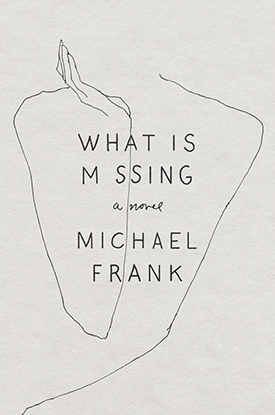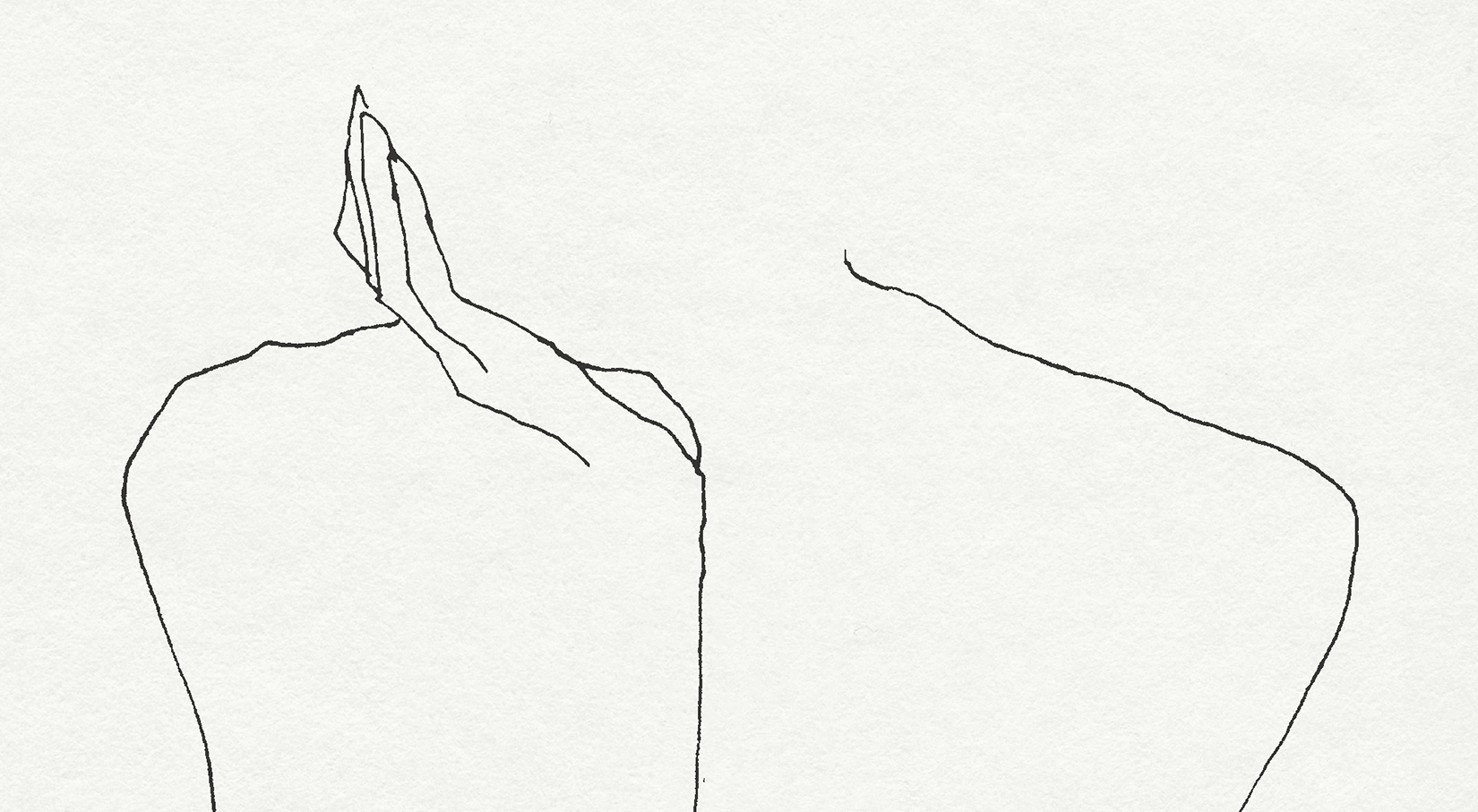
Costanza Ansaldo, a half-Italian and half-American translator, is convinced that she has made peace with her childlessness. A year after the death of her husband, an eminent writer, she returns to the pensione in Florence where she spent many happy times in her youth. There she meets, first, Andrew Weissman, an acutely sensitive seventeen-year-old, and, soon afterward, his father, Henry Weissman, a charismatic New York physician who specializes in—as it happens—reproductive medicine. With three lives each marked by heartbreak and absence—of a child, a parent, a partner, or a clear sense of identity—What is Missing by Michael Frank offers Costanza, Andrew, and Henry the opportunity to make themselves whole when the triangle resumes three months later in New York. There, the relationships among them turn and tighten with combustive effects that cut to the core of what it means to be a father, a son, and—for Costanza—a potential mother.
Here, Michael Frank joins his editor, Ileene Smith, to discuss genre, his own ties to this story, and Italy.
Ileene Smith: The first book we published together, The Mighty Franks (2017), about your fascinatingly turned-in-on-itself family, was so novelistic that I was not surprised that your new book was an utterly gripping novel from which . . . nothing was missing. Where does fiction fit into your writing life?
Michael Frank: I’ve written and published short stories since I was a teenager, so in fact the memoir felt like a kind of detour for me. But now that some time has passed since it came out, I don’t mind making a confession: I first wrote The Mighty Franks as—you guessed it—a novel. I spent several years fictionalizing the story of my family, which was commandeered by my mercurial, gifted, mad—and maddening—aunt, the screenwriter Harriet Frank Jr. I was convinced she would make an unforgettable protagonist for a novel but almost always to a reader the reaction went like this: “The character of the aunt is completely implausible. No one this extreme exists in real life.”
Smith: Hilarious.
I came to understand that I needed more distance from these figures who had so dominated my early life and imagination.
Frank: Maybe . . . but at the time I was devastated. It took everything I had to write that draft. Eventually I came to understand that I needed more distance from these figures who had so dominated my early life and imagination. I needed to write something new—and I did. In fact, I was near the end of What Is Missing when a call came from California telling me that my uncle was dying. I flew out to LA that afternoon. Ten days later, on the plane back to New York, I opened a notebook and began The Mighty Franks as memoir. It poured out of me.
Smith: Was it difficult to return to the novel after that?
Frank: The opposite. I couldn’t wait to get back to it.
Smith: Your title, What Is Missing . . . When it came to you I was elated. It resonates with so much in the novel.
Frank: The phrase comes from a poem by Mark Strand, and it applies in many ways—a longed-for child, withheld information, family members who died in the Holocaust, missing connections between a man and a woman, a father and a son, one brother and another . . .
Smith: The book opens in Italy. Can you explain why destiny brings your three main characters to Florence?
Frank: Italy has played a transformative role in my own life. I lived there on and off in my twenties, in self-imposed exile from my family. It was one of the best decisions I ever made, and I wanted to honor that experience by opening the novel there. I do believe that there is something about taking yourself outside of your own culture that can shake up the way you think about yourself and your life.
Smith: And everyone is pretty shaken up—in one way or another—when What Is Missing opens.
Frank: The novel is built around a triangle, and it’s true that each of the main characters is off-kilter when we meet them. Andrew, the youngest, has just broken up with his girlfriend and is beginning to perceive that something is amiss in his relationship with his father. His father, Henry, a leading New York fertility specialist, is finally ready to restart his life, several years after an agonizing divorce—
Smith: And then there’s your female protagonist Costanza, an accomplished translator and the recent widow of a difficult man, a notable American novelist who never wanted a child. She wakes up one day within striking distance of forty and realizes she wants to become pregnant but can’t. Her experience in the tumultuous world of in-vitro fertilization is written with such compassion. It’s rare for a man to take on a subject like this. Where did that understanding come from?
Frank: Do I have to answer?
Smith: Michael, this is our second book together. You know about the tyranny of the book editor.
Frank: This may seem disingenuous from someone who wrote a memoir about his family, but I’m actually a very private person. Just putting that out there before saying . . . the truth is my wife and I had an extremely difficult time trying to conceive a baby. We underwent multiple rounds of IVF, and I saw close up how intensely a woman is challenged, both physically and psychologically, during the process.
Smith: You also manage to capture the experience from a man’s point of view.
Frank: The yearning that wells up during IVF, the suspense, the anxiety, and the drama of the process mark you—both of you—forever.
Smith: What Is Missing embraces so much beyond infertility: charged relationships between fathers and sons, the legacy of the past, the power of secrets to upend lives—but mostly I think of it as a novel about the extremes of love.
Mostly I think of it as a novel about the extremes of love.
Frank: And how those extremes can become inextricably tangled up in the desire to have a child.
Smith: In this sense it reminds me of The Mighty Franks.
Frank: I hadn’t thought of that! My aunt so desperately yearned to have a child that—figuratively speaking, anyway—she tried to steal me from my parents. Costanza so desperately yearns to have a baby that she—
Smith: Hold on! Editorial tyrant or no, I can’t let you give away your incredible—some might say transgressive—ending.
Frank: Okay, basta—for now.
Michael Frank is the author of The Mighty Franks, the winner of the 2018 Jewish Quarterly–Wingate Prize and a Barnes & Noble Discover Great New Writers selection. His essays, articles, and short stories have appeared in The New York Times, The Wall Street Journal, The Atlantic, Slate, The Yale Review, Salmagundi, and Tablet, among other publications. He lives with his family in New York City and Liguria, Italy.
Ileene Smith is a Vice President and Executive Editor at Farrar, Straus and Giroux.
